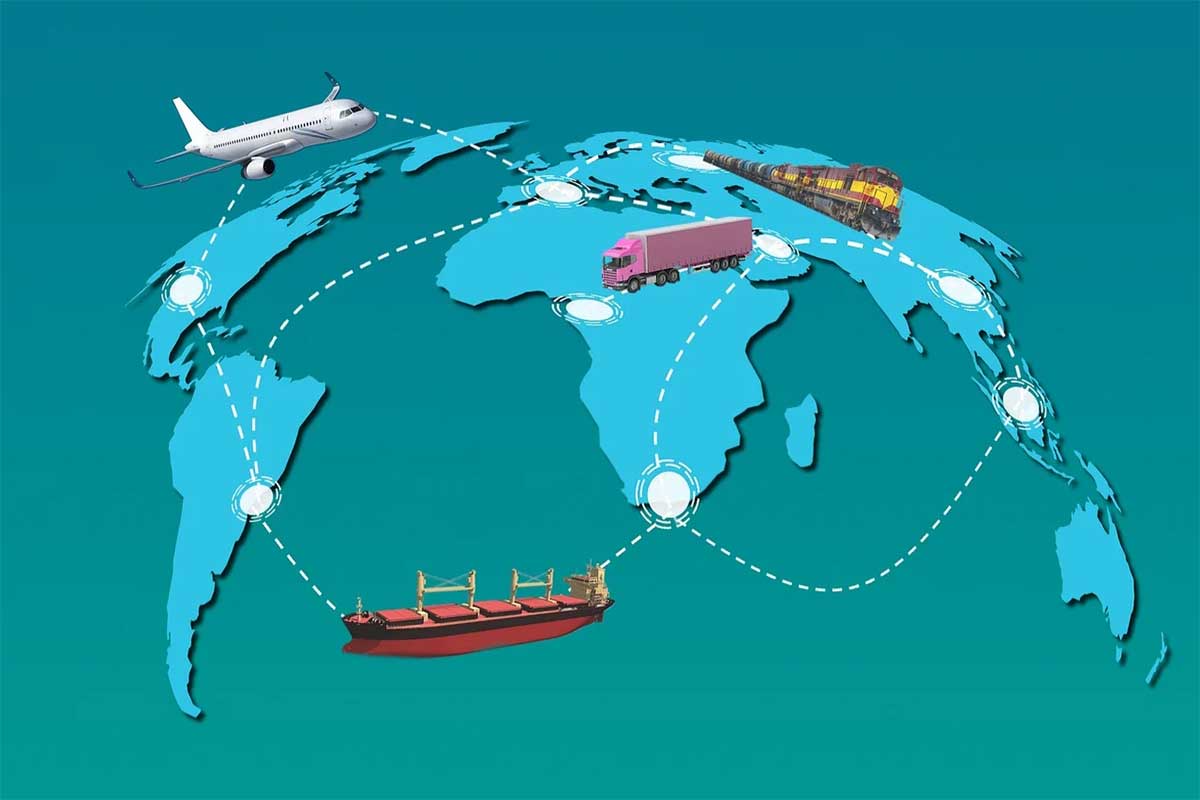In today’s interconnected world, the concept of sustainability has become increasingly important across industries, with supply chains being a focal point for driving environmental responsibility. Among the myriad of sustainability challenges, water management stands out as a critical factor in ensuring the long-term viability of supply chains. In this article, we will explore the pivotal role of water management in fostering sustainability within supply chains, discussing its economic implications, and highlighting innovative technologies and fintech solutions that promote environmental stewardship.

Enhancing Sustainability Through Efficient Water Management:
Efficient water management practices play a crucial role in enhancing sustainability within supply chains. Water is not only essential for the production of goods but also for various stages of manufacturing, transportation, and distribution processes. By implementing water conservation strategies and optimizing water use efficiency, businesses can reduce their environmental footprint, conserve valuable resources, and minimize their impact on local ecosystems.Additional information includes:
- Resource Conservation and Waste Reduction:
- Implementing water conservation strategies can lead to significant reductions in water consumption, thereby conserving finite freshwater resources and minimizing the depletion of aquifers and surface water sources.
- By reducing water usage throughout the supply chain, businesses can also decrease the volume of wastewater generated, lowering the need for costly treatment and disposal processes while minimizing pollution of water bodies.
- Cost Savings and Operational Efficiency:
- Water represents a significant operational cost for many businesses, particularly those operating in water-stressed regions or industries with high water-intensive processes.
- By optimizing water use efficiency and minimizing wastage, businesses can achieve substantial cost savings on water bills, energy expenses associated with water pumping and treatment, and regulatory compliance costs related to water usage and discharge.
- Risk Mitigation and Resilience Building:
- Efficient water management practices help businesses mitigate the risks associated with water scarcity, regulatory uncertainty, and changing climate patterns.
- By diversifying water sources, implementing water recycling and reuse systems, and investing in water-efficient technologies, businesses can enhance their resilience to water-related disruptions and ensure continuity of operations even in the face of water shortages or supply chain disruptions.
- Stakeholder Engagement and Reputation Enhancement:
- Demonstrating a commitment to sustainable water management practices can enhance a company’s reputation and brand value among customers, investors, and other stakeholders.
- Engaging with local communities and stakeholders to address water-related challenges collaboratively can build trust, foster goodwill, and create shared value for all parties involved.
Economic Implications of Water Scarcity:
Water scarcity poses significant economic risks to businesses worldwide. As water becomes increasingly scarce due to factors such as population growth, climate change, and industrialization, the costs associated with water procurement, treatment, and disposal are expected to rise. In addition to direct costs, businesses may also face indirect economic impacts, such as supply chain disruptions, regulatory compliance costs, and reputational damage associated with water-related controversies.
Incorporating water conservation strategies into business operations is not only a matter of environmental responsibility but also a strategic imperative for maintaining competitiveness and resilience in the face of evolving market dynamics.
Innovative Technologies and Fintech Solutions for Water Management:
Fortunately, advancements in technology and the emergence of fintech solutions offer promising avenues for addressing water management challenges within supply chains. From precision irrigation systems and water monitoring sensors to blockchain-based water trading platforms, a wide range of innovative technologies are revolutionizing the way businesses manage water resources.
One example of such innovation is the use of Internet of Things (IoT) devices and artificial intelligence (AI) algorithms to optimize water usage in agricultural supply chains. By leveraging real-time data on soil moisture levels, weather patterns, and crop water requirements, farmers can make informed decisions about when and how much to irrigate, reducing water waste and improving crop yields.
Furthermore, fintech solutions are playing a crucial role in financing water infrastructure projects and promoting investment in sustainable water management practices. Through crowdfunding platforms, impact investing funds, and green bonds, businesses can access capital to implement water conservation initiatives and upgrade water-efficient technologies. Additional information includes:
- Integration of Remote Sensing Technologies:
- Remote sensing technologies, such as satellite imagery and drones equipped with multispectral cameras, provide valuable insights into soil moisture content, vegetation health, and water distribution patterns across agricultural landscapes.
- By leveraging remote sensing data, businesses can optimize irrigation schedules, identify areas of water stress, and implement targeted water conservation measures to maximize agricultural productivity while minimizing water usage.
- Smart Water Metering and IoT Connectivity:
- Smart water metering systems equipped with IoT connectivity enable real-time monitoring of water usage, leak detection, and automatic shut-off capabilities in industrial and commercial settings.
- By analyzing water consumption patterns and identifying inefficiencies in water distribution networks, businesses can proactively address leaks, reduce water losses, and improve overall operational efficiency.
- Decentralized Water Management Platforms:
- Blockchain-based water trading platforms facilitate peer-to-peer transactions and transparent record-keeping for water rights, allocations, and usage.
- By decentralizing water management processes and eliminating intermediaries, blockchain technology enhances trust, transparency, and efficiency in water markets, enabling more equitable distribution of water resources and incentivizing water conservation efforts.
- Innovative Financing Mechanisms:
- In addition to traditional financing avenues, such as bank loans and government grants, businesses can access alternative funding sources for water infrastructure projects through crowdfunding platforms, impact investing funds, and green bonds.
- By tapping into these innovative financing mechanisms, businesses can mobilize capital for sustainable water management initiatives, including investments in water-efficient technologies, wastewater treatment facilities, and ecosystem restoration projects.
Conclusion:
In conclusion, the role of water management in sustainable supply chains cannot be overstated. Efficient water management practices not only contribute to environmental conservation but also have significant economic implications for businesses operating in water-stressed regions. By incorporating water conservation strategies into their operations and leveraging innovative technologies and fintech solutions, businesses can enhance sustainability within their supply chains, reduce costs, and mitigate risks associated with water scarcity.
As we navigate the challenges of a rapidly changing world, it is essential for businesses to prioritize water management as part of their broader sustainability initiatives. By taking proactive steps to conserve water resources and invest in innovative solutions, businesses can not only safeguard their operations but also contribute to the collective effort to build a more sustainable future for generations to come.
Consider leveraging the expertise of Arrowhead Economics in water consultancy services for companies, offering tailored solutions to address water management challenges and optimize sustainability practices within your supply chain.









